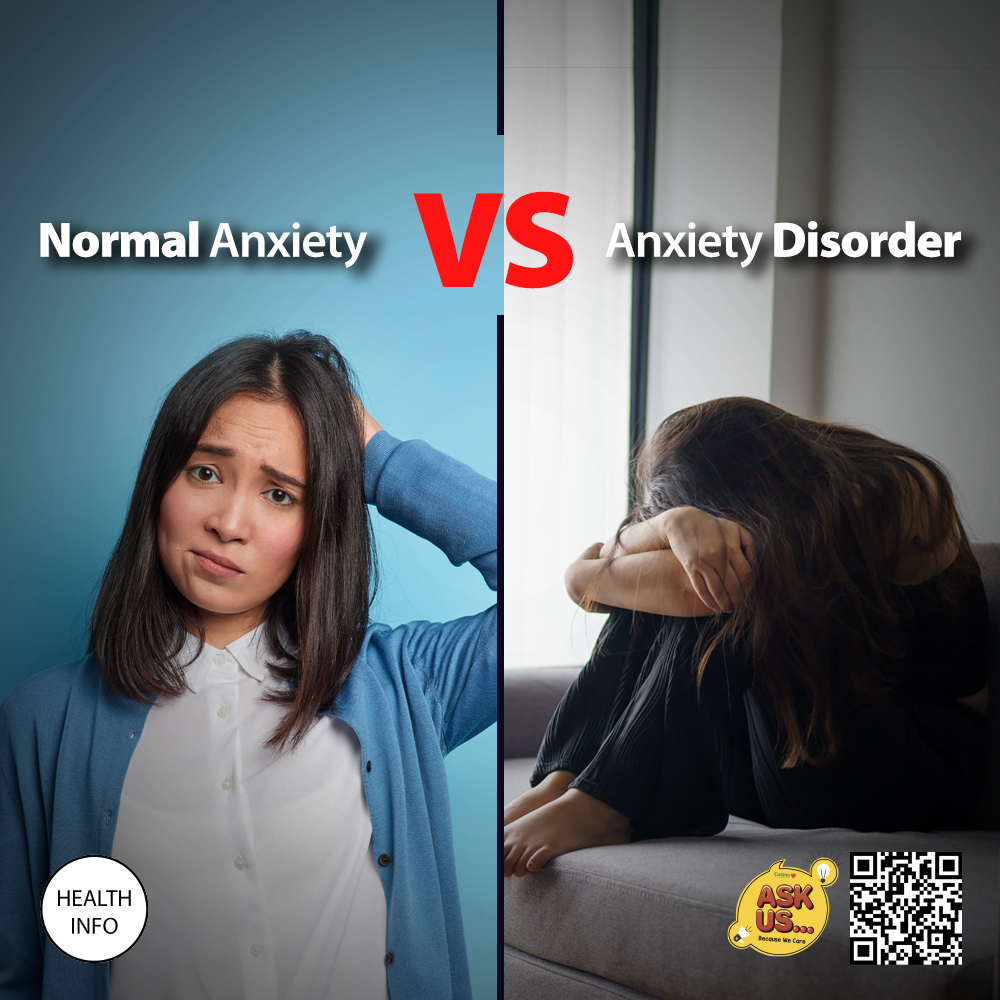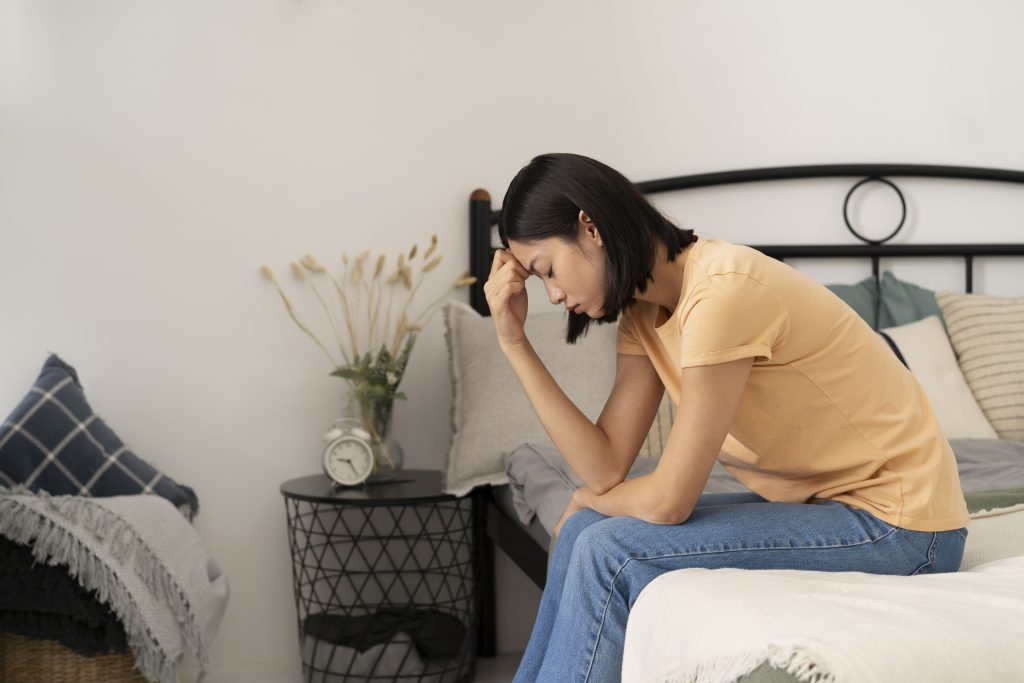- Home
- Health Center
- Health Info
- Understanding the difference: Anxiety vs Anxiety Disorder
Mental Health
Understanding the difference: Anxiety vs Anxiety Disorder


Occasional anxiety is a normal part of life. Many people worry about things such as health, money, or family problems. But anxiety disorders involve more than temporary worry or fear. For people with an anxiety disorder, the anxiety does not go away and can get worse over time. The symptoms can interfere with daily activities such as job performance, schoolwork, and relationships.
Anxiety and anxiety disorder are related but distinct concepts:
| Anxiety | Key Differences | Anxiety Disorder |
| Intensity and Persistence |
|
| Typically minimal. | Impact on Daily Life | Significant distress and impairment. |
| Often self-resolving, manageable with coping strategies. | Management | Requires professional help and treatment by a psychologist or psychiatrist (therapy, medication) |
Understanding Different Types of Anxiety Disorders
Anxiety disorders come in various forms, each with its own set of symptoms and triggers. Here’s a simplified look at some common types:
| Types of Anxiety Disorder | Description |
| Generalized Anxiety Disorder (GAD) | What It Is: GAD involves constant, overwhelming worry about many parts of life, such as work, health, or daily activities. How It Feels: People with GAD might feel restless, tired, have trouble focusing, or experience muscle tension and sleep problems. This worry can be hard to control and lasts for a long time. |
| Panic Disorder | What It Is: It is marked by sudden and intense panic attacks. These are brief episodes where a person feels extreme fear or discomfort. How It Feels: During a panic attack, you might experience rapid heart rate, sweating, shaking, shortness of breath, chest pain, or feel like you’re choking. There may also be a fear of losing control or dying. People often start avoiding places where they fear another attack might happen. |
Social Anxiety Disorder (Social Phobia) | What It Is: This is a fear of social situations where one might be judged or embarrassed. It can make everyday interactions stressful. How It Feels: People with social anxiety might worry about speaking in public, meeting new people, or eating in front of others. They often avoid social events to escape these feelings. |
| Specific Phobias | What It Is: This involves an intense fear of a specific object or situation, like heights, flying, or animals. How It Feels: The fear is much stronger than the actual danger. Individuals might go out of their way to avoid whatever scares them, even if it seems irrational to others. |
| Agoraphobia | What It Is: Agoraphobia is the fear of places or situations where escaping might be hard or where help might not be available if needed. How It Feels: People with agoraphobia might avoid crowded places, public transportation, or being alone outside their home because they worry they won’t be able to escape or get help if they have a panic attack. |
It’s important to seek help for anxiety when it starts to significantly interfere with your daily life and functioning. Here are some specific signs and situations that may indicate it’s time to seek professional help:
- Persistent and Excessive Worry
- Physical symptoms such as restlessness, fatigue, muscle tension, difficulty sleeping, irritability
- Avoidance Behavior
- Decline in School or Work Performance
- Significant changes in mood
- Difficulty carrying out daily responsibilities and tasks
- Impact on Self-Esteem
If you are experiencing any of these signs or symptoms, it’s advisable to seek help from a mental health care professional such as a psychologist or a psychiatrist. They can provide an accurate diagnosis, offer appropriate treatment options (such as therapy, medication, or a combination), and help you develop coping strategies to manage your anxiety effectively. Early intervention can lead to better outcomes and improve your overall quality of life.
References:
- Anxiety Disorder. National Institute of Mental Health. [Online]. [ Retrieved June 2024]. Available at URL: https://www.nimh.nih.gov/health/topics/anxiety-disorders#:~:text=Occasional%20anxiety%20is%20a%20normal,can%20get%20worse%20over%20time
- Generalized Anxiety Disorder. Myhealth Ministry of Health Malaysia. [Online]. [Retrieved June 2024]. Available at URL: http://www.myhealth.gov.my/en/generalized-anxiety-disorder-gad/
- Having Anxiety vs. Feeling Anxious: What’s the Difference?. Jaime Herndon. [Online]. [Retrieved June 2024]. Available at URL: https://www.healthline.com/health/anxiety/anxiety-vs-anxious
Tags
Latest Health Info
Gut and Skin: How They Are Related?
Did you know that your gut and skin are connected? The gut-skin axis is the relationship between the microorganisms in ...
Ladies, Let’s Bring Out The Beauty In You
Ladies, Let’s Bring Out The Beauty In You As women juggle the demands of work, family, and personal health, taking ...
Healthy Weight, Happy Joints
How Does Weight Affect Knee Health? The Link Between Pounds And Pain Osteoarthritis (OA) involves the degeneration of joints, which ...



